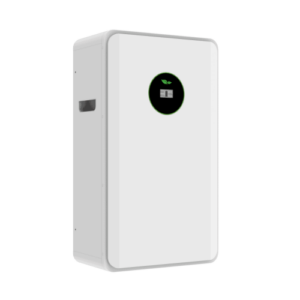目录
ToggleIntroduction
The rise of renewable energy and increasing demand for backup power solutions have fueled the popularity of advanced energy storage technologies. A lithium inverter battery stands out as a robust and efficient option, offering high performance and durability for both residential and commercial applications. This article delves into the essential role of lithium inverter batteries in modern energy systems, their technical advantages, and their relevance in off-grid and backup power solutions.
Understanding the Role of Lithium Inverter Batteries
Lithium inverter batteries are designed to store energy and provide reliable power to inverters, which convert DC power into usable AC power. These batteries are especially critical for systems that rely on renewable energy sources like solar or wind, as well as for backup power setups. Unlike traditional lead-acid batteries, lithium inverter batteries offer a combination of superior energy efficiency, longer lifespan, and lighter weight.
Their ability to deliver consistent power output with minimal losses makes them ideal for applications where reliability and efficiency are paramount. Whether you’re using them in off-grid systems or as backup during power outages, lithium inverter batteries ensure seamless energy availability.

Advantages of Lithium Inverter Batteries
- High Energy Density
Lithium inverter batteries pack more energy into a compact size, making them space-efficient. This high energy density is particularly valuable for systems with limited installation space, such as home inverters or portable setups. - Extended Lifespan
One of the standout features of lithium inverter batteries is their longevity. They can last thousands of charge and discharge cycles, far outpacing traditional alternatives like lead-acid batteries. This durability reduces the need for frequent replacements, lowering overall maintenance costs. - Fast Charging
Lithium inverter batteries support rapid charging, which means they can be quickly recharged during short periods of grid availability or peak sunlight hours in solar systems. This ensures maximum efficiency and minimal downtime in energy systems. - Consistent Power Delivery
Unlike some battery types that suffer from voltage drops during discharge, lithium inverter batteries provide steady power output. This consistency is crucial for maintaining the smooth operation of appliances and systems connected to the inverter. - Environmentally Friendly
Lithium batteries are less harmful to the environment compared to traditional lead-acid options. They are more energy-efficient and can often be recycled, aligning with sustainable energy goals.
Applications of Lithium Inverter Batteries
- Residential Use: Lithium inverter batteries are increasingly used in home energy storage systems. They provide backup during power outages and support solar energy systems by storing excess energy generated during the day for use at night.
- Commercial and Industrial Systems: Businesses rely on lithium inverter batteries for uninterrupted power supply, ensuring smooth operations during grid failures.
- Portable Systems: Due to their lightweight design, these batteries are used in portable power setups, including camping or mobile workstations.
- Off-Grid Solutions: Lithium inverter batteries are a cornerstone of off-grid energy systems, allowing users to store and use energy without reliance on traditional power grids.
How to Choose the Right Lithium Inverter Battery
When selecting a lithium inverter battery, consider the following factors:
- Capacity: Ensure the battery has adequate capacity to meet your energy requirements.
- Compatibility: Verify that the battery works seamlessly with your inverter and energy system.
- Cycle Life: Opt for a battery with a high cycle life for better long-term value.
- Safety Features: Look for built-in safety mechanisms, such as thermal protection and voltage regulation.
Conclusion
Lithium inverter batteries represent a significant advancement in energy storage technology, combining efficiency, reliability, and sustainability. Their high energy density, long lifespan, and rapid charging capabilities make them an indispensable component in modern power systems. As the demand for efficient and reliable energy solutions grows, lithium inverter batteries are set to play an increasingly vital role in powering homes, businesses, and off-grid systems.
By investing in a lithium inverter battery, users can ensure a steady and reliable power supply, contributing to a more sustainable energy future.
0